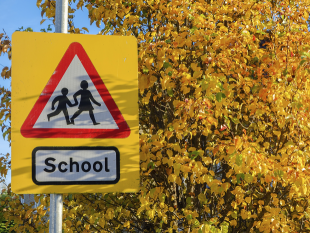
Today we announced that schools and colleges in most areas will be open to all by 18 January with primary schools and early years settings opening to all pupils next week and secondary schools and colleges implementing a staggered return over the following two weeks. Most students will learn remotely during the week beginning January 11. This approach, which takes into account guidance from the Scientific Advisory Group for Emergencies (SAGE), allows for all secondary school age students to be tested before they return to school or college.
The key reasons for making sure schools and colleges are open to as many young people as possible:
We know schools and colleges are the best places for young people’s education
SAGE papers published last month are clear that any closure of education does particular harm to the life chances of disadvantaged and vulnerable students, who have already felt the effects of the first lockdown. That’s why throughout the pandemic we have prioritised vulnerable pupils and year groups that are facing exams this academic year. SAGE is also clear that missing education poses a threat to other pupils’ cognitive development.
And for their wellbeing
The SAGE papers also say with a high degree of confidence that there is evidence that school and college closures cause impairment to the physical and mental health of children. Evidence suggests that the mental health of adolescents is particularly affected but not only that, the Children’s Commissioner has also stated the stark risks school closures pose. In an interview with the Sun she said: “I am particularly worried that some of the most vulnerable children are in danger of dropping out of school or being excluded, slipping out of sight, getting into trouble, and then at risk of being groomed by gangs and criminals.”
We expect secondary schools and colleges to offer testing to all students
Secondary schools and further education colleges will stagger the return of their students to education to give more time for the rollout of rapid testing. This will help find asymptomatic cases and break chains of transmission, and will continue weekly from 18 January.
After the initial mass testing, all school and college staff will be able to have routine testing once a week; pupils/students and staff will be able to do ‘serial testing’ if one of their contacts within school tests positive. If close contacts agree to be tested each day for 7 days, and they test negative each time, they will be allowed to remain in school/college that day.
Schools and colleges have implemented a wide range of measures to minimise the risk of transmission, including making sure that pupils who have to isolate can work from home
Schools, colleges and early years settings across the country have worked extremely hard to remain open to all for face-to-face teaching, implementing safety measures including bubble systems, increased hygiene, changes to layouts and more as well as scaling up remote education provision for those children who are self-isolating.
To support the delivery of remote education for children and young people who are not in school we provided over 560,000 laptops and tablets to schools and local authorities in 2020. Schools are well-prepared to deliver remote education, and we will continue to provide devices in the New Year.
Over one million devices have been purchased for disadvantaged young people through this pandemic, supporting schools, colleges and students to ensure remote education is as strong as it can be. Over 100,000 laptops and tablets will be delivered to schools during the first week of term, and the programme will continue to deliver devices to schools and colleges throughout this term.
Government has now invested £300 million to support remote education and social care, including providing devices and internet access to pupils who need it most.
To support the hard work of schools in delivering remote education, the department has made £4.84 million available for Oak National Academy to provide video lessons in a broad range of subjects for Reception up to Year 11. This provides support to schools in developing the ability to switch from classroom teaching to remote provision immediately in case of local restrictions or self-isolation. Specialist content for pupils with special educational needs and disabilities (SEND) is also available. Oak will remain a free optional resource for 2020-21.